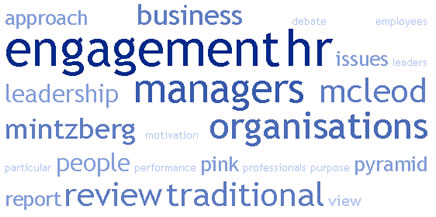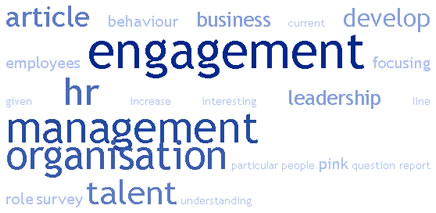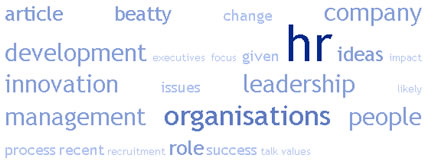Two ideas to consider...
- Focusing on the 'unstructured, intangible and typically unmeasured' will lead to the greatest increase in profits and problem solving over the coming years.
- Benefiting from working on the 'unstructured' will only be fully realised when it is possible to see this in the context of new technologies, processes and practices. In other words, the emergence of a new paradigm or theoretical approach.
'Unstructured, Intangible and Typically Unmeasured'
Gartner and others have suggested that
as much as 60% of an organization’s processes are unstructured – and probably also unmonitored, unmanaged, unknown and unruly
In a similar vein, John Hagel of Deloitte writes that
In a rapidly changing world, the knowledge that matters the most is tacit knowledge... Accessing this kind of knowledge requires long-term trust based relationships and a deep understanding of context
The CIPD then offers us the following
The intangible value of an organisation which lies in the people it employs is gaining recognition by accountants and investors, and it is generally now accepted that this has implications for long term sustained performance
There are of course many more examples, one of the most recent being the contrast between Israeli and US airport security. The Israeli's focus on intangible, human factors, having established successful processes, while the US still focus on the tangible, to the detriment of the more subtle¹.
If only 40% of processes within organisations have been mapped, or are formal enough to commit to ERP programs, for example, that leaves the majority of an organisation's activity which might be better tackled from a different perspective.
New Technologies, Processes and Practices
The obvious candidate to fulfil the brave new world of intangibles is Enterprise 2.0 and its collection of internet technologies. While the potential exists for E2.0 to be open, democratic, disruptive and transformative, the jury is still very much out on this.
By way of contrast, perhaps Gary Hamel best sums up the status quo. Quoting research from Towers Perrin on engagement, he writes
barely one-fifth (21%) of employees are truly engaged in their work, in the sense that they would “go the extra mile” for their employer. Nearly four out of ten (38%) are mostly or entirely disengaged, while the rest are in the tepid middle. There’s no way to sugarcoat it—this data represents a stinging indictment of the legacy management practices found in most companies
Interestingly, Gary's recommendations aren't a million miles away from other recent suggestions on the subject
We’ve got to get management’s dirty little secret out of the HR closet and into the boardroom. And second, if we’re going to improve engagement, we have to start by admitting that the real problem isn’t irksome, monotonous work, but stony-hearted, spirit-deflating managers
These thoughts reminded me of a point made by Rick where he writes
That the HR function needs to become more strategic is a mantra I first heard over twenty years ago when I started working in HR...
Just because senior executives are starting to see the importance of managing human resources it doesn’t mean that they will give Human Resource managers a seat at the top table. It might even be that the HR function never becomes strategic at all and that HR professionals are relegated to a support role while someone else does all the interesting stuff
I think Mark and Seth's points light the way ahead, but I wonder how long it will be before people management benefits from something as exciting as 'artists taking over from the technicians'...
Footnote
1. Finding spending comparisons between Israel and the US is easier said than done.








